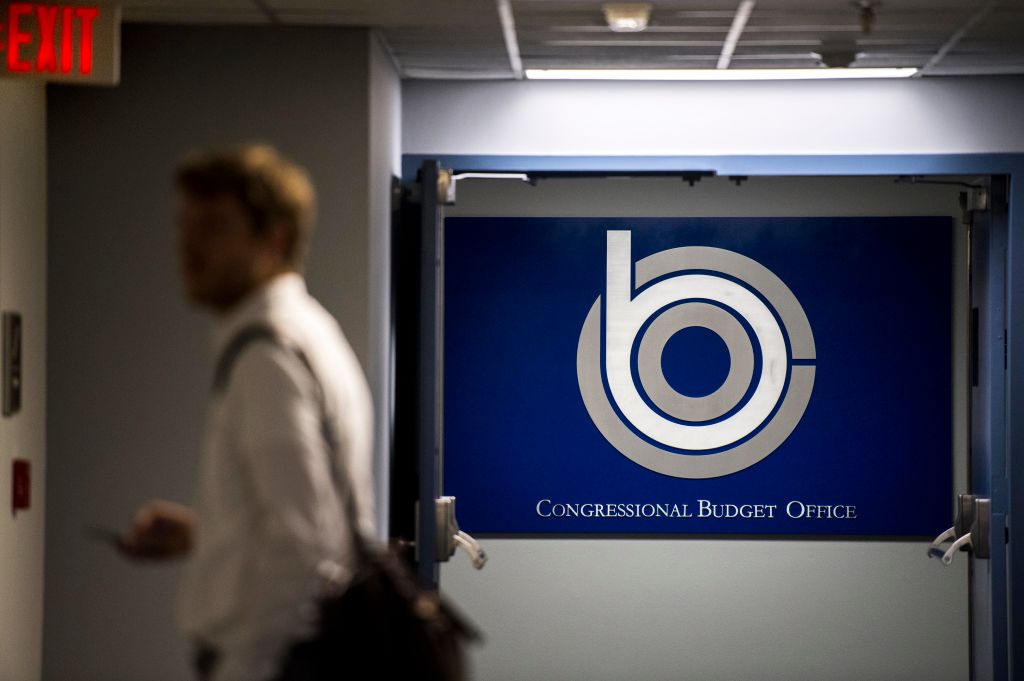The US government is entrenched in a bitter fiscal battle over the debt ceiling and the federal deficit. The CBO (Congressional Budget Office), a non-partisan budget watchdog, once again poured cold water on President Joe Biden’s claim that his administration and Democrats on Capitol Hill are behaving in a fiscally responsible manner. The organization published two critical estimates on Feb. 15: Washington risks a default as early as July, and the budget shortfall will increase in the current fiscal year. Put simply, Uncle Sam is in financial distress. But who will bail him out over the next decade? Perhaps no one can.
Default by July, CBO Cautions
Last month, the US government reached its debt limit of $31.4 trillion, forcing the Treasury Department to employ “extraordinary measures” by borrowing additional funds without violating the debt ceiling. However, Secretary Janet Yellen prognosticated that these efforts would be exhausted by the early summer, meaning the federal government could default on its obligations and ignite an “economic and financial catastrophe.”
The CBO reiterated this prediction, warning that lawmakers risk a payment default sometime between July and September. But officials noted that the projected exhaustion date depends on multiple factors, including outlays and revenue collection, as they may differ from the watchdog’s estimates. For example, if Washington generates less income in the coming months, the Treasury’s measures might be exhausted sooner and the department could run out of money before July.
“If the debt limit is not raised or suspended before the extraordinary measures are exhausted, the government would be unable to pay its obligations fully. As a result, the government would have to delay making payments for some activities, default on its debt obligations, or both,” the CBO said in the report.
House Speaker Kevin McCarthy (R-CA) and his fellow Republicans have refused to raise the debt ceiling until Biden and the Democrats agree to cut future spending and rein in debt growth. However, the White House confirmed this is not an issue open for negotiation, although the president has welcomed deficit reduction talks with the GOP leadership.
A Decade of Deficits
Biden has routinely touted that his agenda has successfully slashed the budget deficit, despite most of the decline resulting from the expiration of COVID-related spending. However, even if Bidenomics were responsible for a lower deficit since taking over from former President Donald Trump, the CBO is not confident about the future.

(Photo by Melina Mara/The Washington Post via Getty Images)
In addition to the debt default report, the CBO released its deficit projections for 2023 and the coming decade. The group forecasted that the budget shortfall would total $1.4 trillion this fiscal year, up $400 billion from its previous estimate in May and $100 billion from the previous year’s deficit. Moreover, the cumulative deficit over the 2023-2032 span is expected to be $3 trillion larger than it had anticipated this past spring. During this period, the US government is predicted to record average annual deficits of $2 trillion, “with the assumption that current laws governing federal taxes and spending generally remain unchanged.”
The deficit will represent 5.3% of the gross domestic product this year and climb to 6.9% of the GDP in 2033, nearly double the 3.6% average of the last half-century. At the same time, federal debt held by the public will soar to 118% of the GDP by 2033 and 195% in 2053. Overall, by 2033, the national debt will skyrocket to $50 trillion.
“Over that period, the growth of interest costs and mandatory spending outpaces the growth of revenues and the economy, driving up debt,” CBO director Phillip Swagel said in a statement. “The increase in mandatory spending is driven by rising costs for Social Security and Medicare. Total discretionary spending falls in relation to GDP. As the cost of financing the nation’s debt grows, net outlays for interest increase substantially.”
In the next ten years, combined Social Security and Medicare spending will almost double, approaching $4 trillion. This would account for more than 10% of the nation’s total economic output. In addition, Medicare will face a funding shortfall in 2028, and Social Security will endure a gap in 2032, which would be two years sooner than the CBO’s previous projection. Costs of other mandatory health care programs, such as the Affordable Care Act (Obamacare) subsidies and the Children’s Health Insurance Program (CHIP), will rise at an exponential pace.
Will the Economy Save Uncle Sam?
Unfortunately, not even the world’s largest economy can prevent the government from falling off a fiscal cliff. Because of sharp increases in interest rates last year, the real GDP growth rate (inflation-adjusted) will grind to a halt this year and average just 2.4% from 2024 to 2027 and 1.8% from 2028 to 2033, according to the CBO. Maya MacGuineas, president of the Committee for a Responsible Federal Budget (CRFB), shared a sentiment that many realistic economists might also possess: “Today’s CBO report should provide an important dose of reality for politicians making promises they can’t afford to keep.” So, until officials become mature enough to make some tough choices and refrain from thinking every day is Christmastime with taxpayer dollars, America’s finances will remain out of control.



